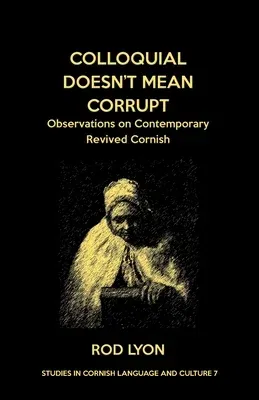William Scawen, writing in the seventeenth century when Cornish was
still the vernacular, compares Cornish with other Celtic languages, and
says that Cornish is "lively and manly spoken". When we hear the
majority of present-day Cornish speakers, however, this can rarely be
said--particularly when considering the "lively" part. Rod Lyon believes
that for a number of years matters have been getting worse. He therefore
has undertaken some research to find out why this appears to be the
case. Inevitably his research has led him to study in depth the
traditional Cornish texts. Present-day teaching methods and a particular
approach to the texts seem to be the main causes of the problem. As Lyon
illustrates in this book, current teaching of the language is
concentrated far too heavily on the linguistic structure of the old
texts, which were by and large all theological works, often following
strict poetic measures and by their very nature, lacking in any
idiomatic, everyday Cornish. This approach of mainly written, academic
thinking towards the language has resulted in the most important aspect
of any language--fluent and lively conversational Cornish--being
sidelined or even ignored. This is proven by the number of people who
can write lengthy, academically perfect passages of Cornish, but are
unable to string together a sentence in an impromptu everyday
conversation. Are these above reasons then solely to blame for the lack
of lively speakers? Although they point to the root problem, Lyon also
highlights other aspects of the revived language which are strong
contributing factors.


